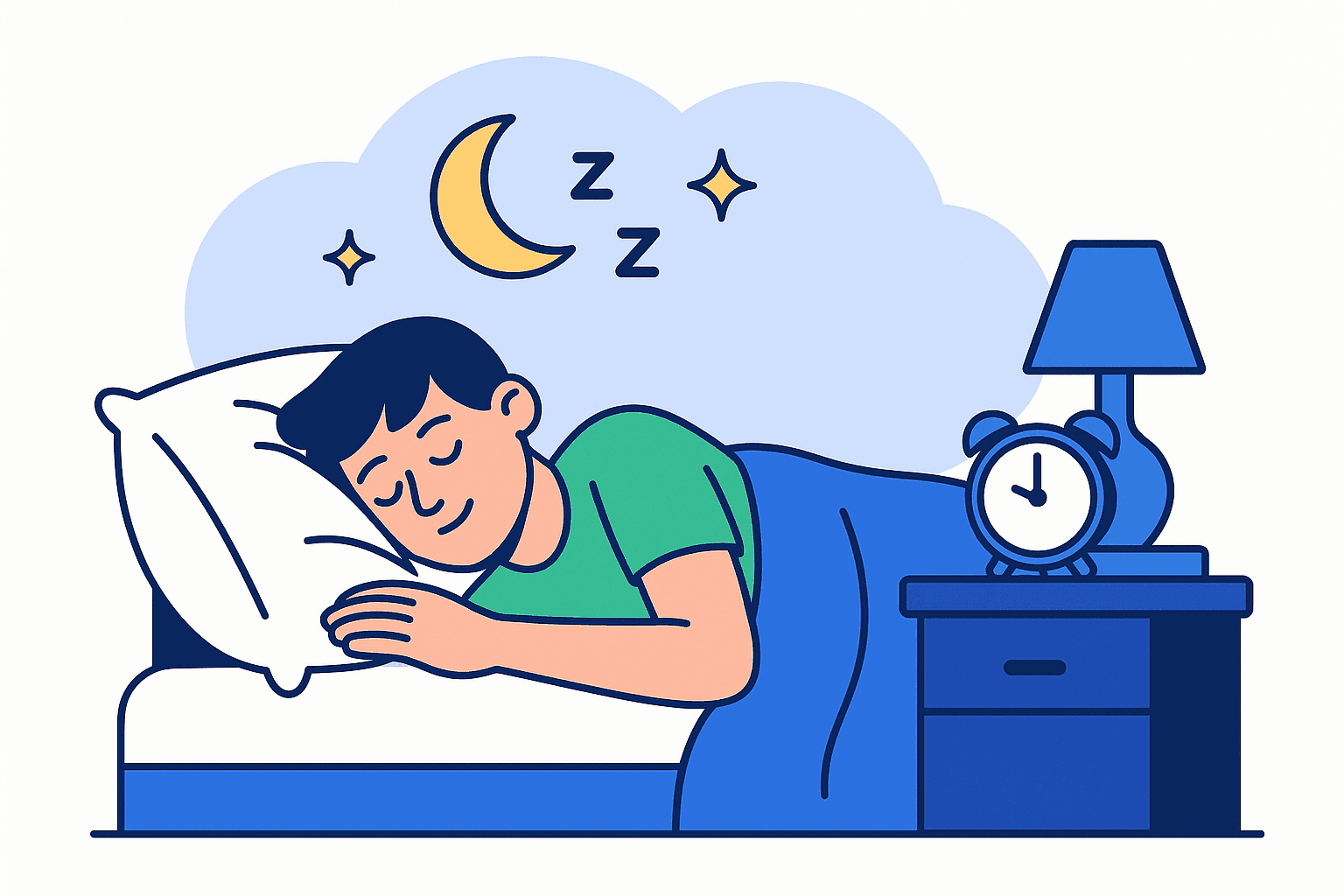
Better Sleep Habits Backed by Science: Improving Productivity

TL;DR
Sleep affects more than rest — it drives focus, decision-making, and mental clarity. Building consistent, science-backed sleep habits can dramatically improve your productivity and overall well-being.
Why Sleep Is the Real Productivity Hack
We often look to to-do lists, time-blocking, and caffeine for productivity boosts — but one of the most powerful tools is also one of the most overlooked: high-quality sleep. Research consistently shows that better sleep leads to sharper focus, stronger memory, improved decision-making, and better emotional regulation.
The Science Behind Sleep and Focus
When we sleep, the brain consolidates memories, clears waste, and rebalances neurochemicals that affect focus and mood. Inadequate or inconsistent sleep has been shown to reduce cognitive performance at the same level as mild intoxication.
A 2022 meta-review published in Nature and Science of Sleep found that even a single night of poor sleep can significantly impair working memory and task-switching — both key for everyday productivity.
Small Habit Shifts That Improve Sleep Quality
You don't need a perfect bedtime routine to benefit from better sleep — just a few consistent habits:
-
Set a consistent bedtime and wake time. Your body thrives on rhythm. Going to bed and waking up at the same time every day (yes, even weekends) strengthens your circadian rhythm.
-
Limit screens before bed. Blue light can delay melatonin release. Try reading a physical book or journaling instead of scrolling.
-
Use your bed only for sleep. This helps your brain associate your bed with rest — not work, TV, or anxiety.
-
Cut caffeine after 2 p.m. Caffeine has a long half-life and can interfere with deep sleep hours after consumption.
-
Wind down, don’t crash. A simple wind-down routine signals your body it’s time to rest — like stretching, dim lighting, or listening to calm music.
Why It Matters for Habits and Productivity
Poor sleep makes habit consistency harder. It lowers your ability to focus, follow through, and regulate emotions — all of which are essential for staying consistent with new habits.
On the flip side, people who sleep well tend to:
- Be more resilient to stress
- Follow through on daily goals
- Make healthier choices
Start Small, Sleep Smarter
Improving sleep doesn’t have to be a total overhaul. Start by picking one small sleep habit to adjust — and give it a week. You may be surprised how much sharper, calmer, and more productive you feel.